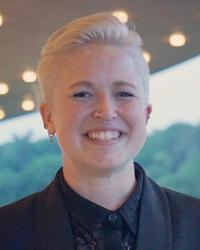Five Natural Remedies for ADHD, According to a Psychiatrist

Medication is an effective treatment for attention-deficient hyperactivity disorder (ADHD), but for mild symptoms, there’s other ways to support focus and staying on track. Chantal Rozmus, psychiatrist, UnityPoint Health, offers five natural ADHD remedies to try.
1. ADHD Behavioral Therapy
Behavioral therapy for ADHD is a practical approach that focuses on helping individuals learn new behaviors and skills to better manage their symptoms. Here’s what to expect from behavioral therapy sessions:
- You and your therapist will identify behaviors you need help with, like trouble focusing, impulsiveness or hyperactivity.
- Together, you’ll set clear goals and expectations to improve these behaviors.
- Your therapist will teach you new behaviors and skills, such as organizational tricks, time management or ways to keep focus.
- You and your therapist then create a reward system for successfully using these new skills.
- You’ll continue to practice the skills you’ve learned with your therapist’s support.
The key is creating a treatment plan that addresses your unique challenges with executive functioning (i.e. the ability to pay attention). When practiced repeatedly, new skills become habits — leaving you empowered and equipped to manage your ADHD symptoms.
For children, Rozmus says, “Behavioral therapy is great and tends to be done in partnership with a child’s school. Having the ability to do things like getting up to walk around for a bit can make a big difference.”
2. Exercise for ADHD
When you exercise, the brain releases dopamine, which naturally reduces feelings of anxiety and depression. It also has a positive impact on attention, concentration, learning and other important cognitive functions.
People who have ADHD typically have neurons in their brain that have a tough time responding to dopamine — making regular movement a good symptom-reducing activity.
Dr. Rozmus says there’s no one type of exercise that’s best for ADHD but recommends doing something you, or your child enjoy, that gets the heart pumping. Team sports, aerobic workouts, weightlifting, swimming, biking, running, walking, etc. are all exercises that can calm symptoms of ADHD.
3. Supplements for ADHD
There isn’t enough scientific evidence to know if supplements can truly lessen ADHD symptoms. Rozmus says there’s been some studies about the potential for Omega-3s and probiotics to help with ADHD symptoms. However, there’s still much to be discovered.
She adds, “It’s not a bad idea to take either. Vitamins are good for you, but I wouldn’t recommend taking one as your sole treatment for ADHD."
4. Video Game for ADHD
Video games have received a bad rap over the years — especially with concerns about too much screen time and their impact on emotional and physical well-being. However, EndeavorRx is an FDA-approved video game designed to treat ADHD. It’s appropriate for children 8-12 years old and targets specific cognitive skills, like focused attention, impulse control and multitasking.
EndeavorRx can be one piece in a behavioral therapy treatment plan and requires a prescription from your provider. The game is intended to be used 25 minutes a day, five days a week, over a four-week period.
There are some drawbacks though. Dr. Rozmus says it’s expensive and unlikely to be covered by insurance.
5. Diet for ADHD
More research is needed to recommend a specific diet for ADHD. However, some foods have nutritional profiles that are good for brain health. For example, protein-rich foods can help boost neurotransmitters in the brain, like dopamine and norepinephrine, which are often low in individuals with ADHD.
Try adding the following foods into your, or your child’s, meals and snacks:
- Lean meats
- Eggs
- Fish
- Beans
- Nuts
It’s a good idea to limit your sugar, unhealthy fats and simple carbohydrate intake for overall mental and physical health.
How Does ADHD Medication Work?
If you, or your child, are struggling with ADHD symptoms without luck from natural remedies, consider talking to your doctor about support from medication.
ADHD medications increase the levels of neurotransmitters in the brain, like dopamine, to give the brain a little boost. Stimulants and non-stimulants are the primary medications used to treat ADHD.
Rozmus says, “For someone without ADHD, stimulants make you hyperactive, because your brain doesn’t need the extra dopamine burst. However, in individuals whose brains need more dopamine to stay focused, medications give the brain the direction it needs to keep on task.”
Side effects of ADHD medication can include:
- Fast heart rate
- Headaches
- Loss of appetite
- Trouble sleeping
Any side effects should go away in the first few days of starting the medication. While it won’t cure ADHD, medication can make it significantly easier to focus longer, listen better and fidget less.
It’s also OK to take what Rozmus calls “medication vacations” when using ADHD stimulants. You may choose to not take them on the weekends or during holiday breaks.
When to Talk to Your Doctor About ADHD Treatment
Before deciding on a specific approach for treating ADHD, talk to your, or your child’s, primary care provider or mental health professional. They can help you understand if you have ADHD or something else. For example, anxiety and depression are closely linked to the disorder.
“Not everyone with an ADHD diagnosis needs medication. The main thing to consider is, ‘Is this disrupting my, or my child’s, life?’ Then, work with your care team to determine what treatment options are right for you," Rozmus says.
Medically Reviewed By

Chantal Rozmus, DO
Behavioral Medicine, Psychiatry
